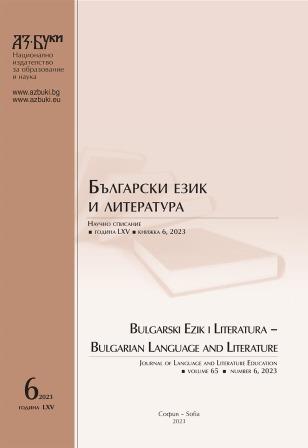Семантико-синтагматични особености на предлозите в българските двупредложни конструкции
Semantic-syntagmatic characteristics of prepositions in Bulgarian double-preposition constructions
Author(s): Gocho Gochev, Sijka GochevaSubject(s): Language studies, Language and Literature Studies, South Slavic Languages, Philology
Published by: Национално издателство за образование и наука „Аз-буки“
Keywords: double-preposition; construction; preposition; relevance; semantic, syntagmatic; notional
Summary/Abstract: The semantic-syntagmatic analysis of Bulgarian double-preposition constructions reveals that they are formed through two main mechanisms - semantic (linguistic) and notional (non-linguistic). Semantic constructions are characterised by combinations of prepositions in synonymous relations, while notional constructions arise when a broad-meaning preposition is combined with a prepositional phrase. The synonymous semantic relation of the two prepositions turns them into a single unit with a single meaning. In notional constructions, prepositions do not form a single semantic whole, but rather function as markers of relevance and are involved in the organization of the utterance / sentence as meaning-forming elements. The word order in double-preposition constructions depends on the semantic content of the meanings of the prepositions: in case of relatively similar content, word order is free, while in the presence of a preposition with a broad semantic content, it is fixed, i.e. the preposition with the broader content appears in initial position. The identification of semantic and notional varieties not only helps to systematize double-preposition constructions, but can also serve to distinguish them from prepositions co-occurring for some other reason.
Journal: Български език и литература
- Issue Year: 65/2023
- Issue No: 6
- Page Range: 586-597
- Page Count: 12
- Language: Bulgarian

